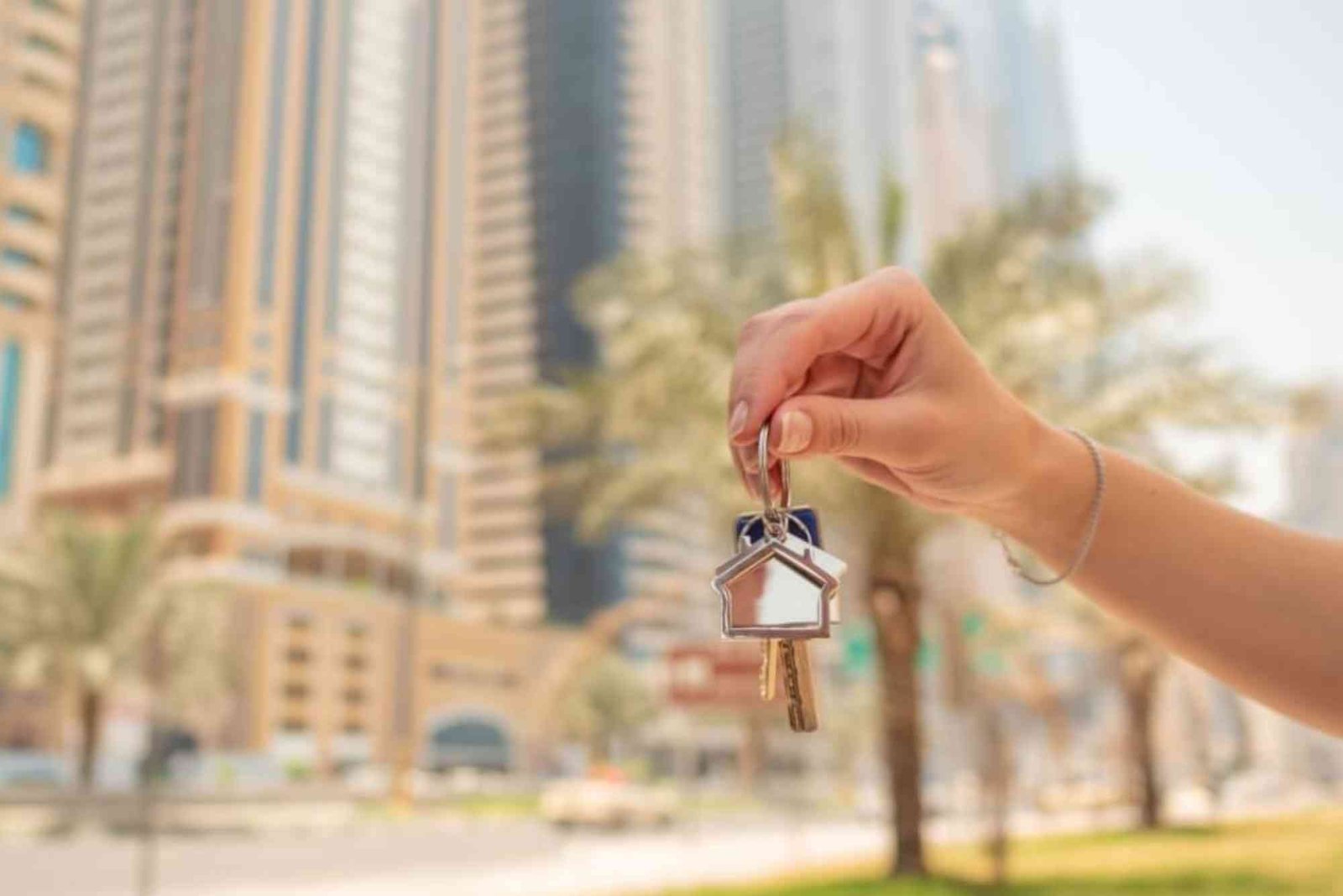Introduction
Buying property in Dubai is a dream for many expatriates and investors worldwide. With its thriving real estate market, strong economy, and stable environment, Dubai has become a hotspot for property ownership. However, understanding how to get a mortgage in Dubai step by step financing guide tips & common mistakes is crucial before making such a large financial commitment. Whether you are a first-time buyer or an investor, this detailed guide walks you through every stage — from eligibility and documentation to financing tips and common pitfalls.
Understanding the Mortgage Landscape in Dubai
Dubai’s property market is open to both UAE nationals and expatriates. Foreigners can buy property in designated freehold areas and can also access mortgage options through local and international banks. However, the process involves specific regulations and eligibility requirements that vary depending on your residency status and income.
Mortgage loans in Dubai can be categorized into fixed-rate, variable-rate, and Islamic (Sharia-compliant) financing. Each comes with its advantages and risks. A fixed-rate mortgage provides stability, while a variable-rate loan offers flexibility if interest rates drop. Islamic financing, based on profit rather than interest, appeals to those seeking Sharia-compliant options.
Determine Your Eligibility
Before applying, evaluate your eligibility. Banks in Dubai assess various factors, including employment type, income, age, and credit history. Typically, expatriates must earn a minimum of AED 15,000–20,000 per month, while UAE nationals may qualify with lower thresholds.
You also need a stable employment history — at least six months with your current employer or one year if self-employed. Lenders examine your debt-to-income ratio, which generally should not exceed 50%.
Identify the Right Property
Choosing the right property is key to securing favorable mortgage terms. Properties located in approved freehold areas qualify for financing, while off-plan or under-construction properties may have limited options. Check whether the property is developer-approved by your chosen bank.
During this stage, consult with a real estate basics expert to understand the local market trends, property values, and potential returns. This ensures your investment decision is backed by market data rather than emotion.
Choose a Suitable Mortgage Type
Dubai offers several mortgage types designed for different needs. Fixed-rate mortgages lock your rate for a set period (usually 3–5 years), giving predictable repayments. Variable-rate mortgages fluctuate based on EIBOR (Emirates Interbank Offered Rate), meaning payments may rise or fall.
Islamic home finance follows Sharia principles, where the bank purchases the property and sells it to you at an agreed profit margin. This structure avoids interest and aligns with Islamic financial ethics.
Compare options across banks to find the best deal. Pay attention to interest rates, fees, early settlement charges, and flexibility in repayment terms.
Get Pre-Approval from a Bank
Pre-approval is one of the most important steps in this in-depth look at how to get a mortgage in Dubai step by step financing guide essential due diligence process. It involves submitting documents to the bank so they can assess your eligibility and issue a pre-approval letter. This letter gives you an idea of your borrowing capacity and strengthens your negotiating power when dealing with sellers.
Documents required typically include:
-
Passport, visa, and Emirates ID
-
Proof of residence (tenancy contract or DEWA bill)
-
Salary certificate or company trade license (for self-employed)
-
Recent payslips or bank statements (usually six months)
Once approved, your pre-approval letter is valid for 60 to 90 days, giving you time to finalize your property choice.
Property Valuation and Offer Letter
After identifying your desired property, the bank conducts a valuation to determine its market worth. This ensures the loan amount aligns with the property’s real value. Usually, valuation fees range from AED 2,500 to AED 3,500.
Based on the valuation, the bank issues a formal offer letter outlining loan details — interest rate, tenure, fees, and repayment plan. Review it carefully before signing.
Down Payment and Sales Agreement
To proceed, you must pay a down payment. For expatriates, this typically ranges between 20–25% of the property’s value, while UAE nationals may pay around 15%. Ensure your funds are ready as this amount cannot be borrowed.
Next, sign the Memorandum of Understanding (MoU) or Sales Agreement with the seller, usually drafted by your real estate agent. This document outlines the terms of sale, deposit amount, and completion date.
Final Mortgage Approval and Transfer
Once the agreement is in place, the bank finalizes the mortgage approval. The final step involves transferring the property at the Dubai Land Department (DLD). During the transfer, the buyer, seller, and bank representatives meet to complete all payments and legal paperwork.
The DLD charges a 4% transfer fee based on the property’s value, plus admin fees. Once the process is complete, the property title deed is issued under your name, and the bank holds it as collateral until the mortgage is fully repaid.
Common Mistakes to Avoid
Many first-time buyers make avoidable mistakes that lead to unnecessary costs and delays. Understanding these pitfalls can save you time and money.
One common error is neglecting pre-approval before house hunting. Without pre-approval, you risk falling for properties beyond your financial reach. Another mistake is ignoring hidden costs like valuation fees, registration charges, and insurance.
Some buyers also fail to compare mortgage rates across banks. Even a small difference in interest rate can significantly impact long-term repayments. Additionally, rushing through contracts without understanding terms can lead to unpleasant surprises later.
Avoiding these errors ensures a smoother mortgage journey and protects your financial health.
Expert Tips for a Smooth Mortgage Process
Work with a mortgage advisor who understands Dubai’s banking system. They can help you navigate offers, documentation, and negotiations with lenders. Always maintain a good credit score by paying existing debts on time, as banks in the UAE use credit bureau data to assess risk.
If you are self-employed, keep your financial records updated and transparent. Banks prefer applicants with consistent income patterns. Consider opting for mortgage protection insurance to safeguard your family in case of unforeseen events.
Finally, stay informed about market trends and EIBOR rates, as they influence mortgage pricing. Knowledge helps you decide whether to lock in a fixed rate or take advantage of a floating one.
Understanding Fees and Additional Costs
Besides the down payment, several fees apply during the mortgage process:
-
Bank processing fee: Usually 1% of the loan amount
-
Valuation fee: AED 2,500–3,500
-
DLD fee: 4% of property value
-
Trustee fee: AED 4,000 (for registration)
-
Broker commission: 2% of property price
Always factor these into your budget to avoid financial strain.
Refinancing and Early Settlement Options
Dubai banks offer refinancing for homeowners seeking better terms or lower rates. Refinancing can reduce your monthly payments or shorten your loan tenure. However, be aware of early settlement charges — typically 1% of the outstanding balance.
If your financial situation improves, paying off part of your loan early can save interest in the long run. Check your mortgage agreement for prepayment conditions to avoid penalties.
Legal and Regulatory Considerations
Dubai’s property laws are transparent, but it’s important to understand your rights and obligations. Always verify the developer’s approval, DLD registration, and property ownership documents. Work only with registered brokers and avoid verbal agreements.
The UAE Central Bank regulates mortgage limits and loan-to-value ratios to protect buyers from over-leverage. Staying compliant ensures a smooth legal process and peace of mind.
The Role of an Editorial Partner
If you need reliable insights or professional content about Dubai’s real estate and finance sectors, collaborating with an editorial partner can enhance your knowledge and guide you through complex market topics. They often publish expert-led analyses and up-to-date mortgage trends.
Securing a mortgage in Dubai can be an empowering step toward property ownership, but it requires careful planning and due diligence. From pre-approval to final registration, every stage demands attention to detail and financial awareness.
Understanding how to get a mortgage in Dubai step by step financing guide tips & common mistakes helps you avoid costly errors and make informed decisions. Take time to compare banks, review terms, and consult experts before signing any agreement.
Ready to begin your Dubai homeownership journey? Start by getting pre-approved and exploring trusted mortgage advisors today. A well-informed choice today ensures a confident investment tomorrow.
FAQs
Can foreigners get a mortgage in Dubai?
Yes, expatriates can obtain mortgages for properties in freehold areas, provided they meet bank eligibility criteria.
What is the minimum down payment for a mortgage in Dubai?
For expatriates, the minimum is usually 20–25% of the property value; UAE nationals may pay around 15%.
How long does the mortgage approval process take?
The entire process can take 2–6 weeks, depending on documentation and bank procedures.
Is Islamic home financing different from a conventional mortgage?
Yes, Islamic financing avoids interest (riba) and instead uses a profit-based structure compliant with Sharia principles.
Can I refinance my mortgage later?
Yes, many banks offer refinancing options for better rates or shorter loan terms, subject to early settlement fees.




